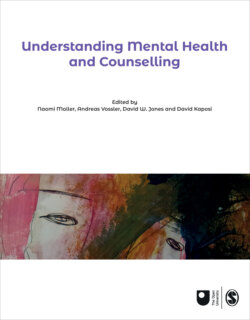Читать книгу Understanding Mental Health and Counselling - Группа авторов - Страница 49
На сайте Литреса книга снята с продажи.
2.1 Empirical challenges: the validity and reliability of diagnosis
ОглавлениеPsychologists sought to apply to diagnosis the criteria they used when evaluating the validity of psychometric tests. For example, did diagnosis predict outcomes? Were interview-based diagnoses corroborated by other methods? In a review of research relevant to the different types of validity, psychologist Joseph Zubin noted that ‘just now, diagnosis is at its lowest ebb’ (Zubin, 1967, p. 395). He took a middle position between those who saw the diagnostic system as excellent, requiring only better training of diagnostic interviewers, and those who thought that diagnosis was not ‘possible or even desirable’ (Zubin, 1967, p. 395). Instead, he concluded that the system simply represented a ‘good starting point from which to improve approaches to classification’ (Zubin, 1967, p. 395) and he recommended the adoption of a dimensional rather than categorical approach and more reliable interview methods.
Psychologists Frederick Thorne and Peter Nathan (1969) reviewed studies that had compared patients’ DSM-II diagnoses with their responses to a 100-item symptom checklist administered by a psychiatrist. They found that the distribution of symptoms generally did ‘not conform to patterns postulated in the official classification system’ since they were ‘distributed across the whole range of disorders in mixed patterns’ (Thorne and Nathan, 1969, p. 382). Only ‘functional psychosis’ was clearly differentiated, while the symptoms of ‘psychoneurosis’ were found in all diagnostic categories and ‘personality disorder’ was ‘essentially undifferentiable’ from other categories (Thorne and Nathan, 1969, p. 382). Moreover, some of the supposedly classical symptoms of categories were so rare or occurred in such mixed patterns that they had ‘little or no diagnostic predictive power’ (Thorne and Nathan, 1969, p. 382).
However, not only did the DSM categories lack validity, other studies suggested that psychiatrists could not use them reliably. In a joint US–UK study of the psychiatric diagnosis of schizophrenia, Kendell et al. (1971) found that US psychiatrists had a much broader construct of schizophrenia than their UK colleagues, and so were much more likely to diagnose it. Spitzer and Fleiss’s review of studies of diagnostic reliability acknowledged the ‘obvious unreliability of psychiatric diagnosis’ (Spitzer and Fleiss, 1974, p. 344) and argued that reliability could be improved through the use of detailed, specific criteria and structured diagnostic interview schedules.
